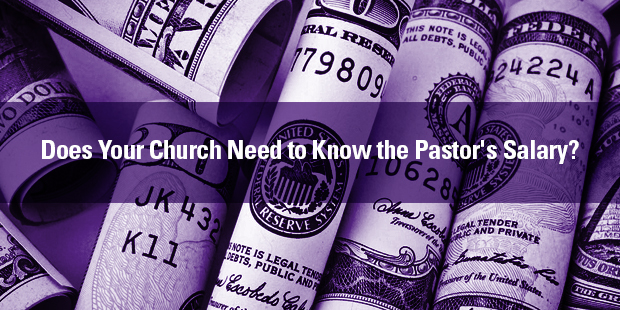
Does Your Church Need to Know the Pastor’s Salary?
This question comes to the Church Answers’ team and me a few times a month. It often evokes some pretty strong emotions. Can a church member (or, in some cases, guests) look at a church budget and know exactly what everyone on church staff earns?
The tension is between transparency and misunderstanding. On the one hand, transparency is usually a good default posture. Especially in congregational polity, church members have final authority over major decisions. It just makes sense they should have visibility to pastor and staff salaries.
On the other hand, putting detailed staff salaries before all the church members can be a problem for the following reasons:
- Many church members get confused over the term “packages.” For example, pastors with a “package” of $60,000 may only be making $45,000. The difference is the benefits, such as retirement and health insurance. The package is the total cost to the church. The salary (which sometimes includes housing) is what the pastor actually gets. Many church members view the package as the equivalent of a salary, but it definitely is not. In fact, most church members likely do not know their secular-equivalent package in their vocations. In other words, they do not know the costs of their benefits to their employer.
- Visibility of a specific salaries and benefits of pastors and church staff can create tensions among the staff. Can you imagine what it would be like if secular employers posted all the salaries of their employees each month?
- Church members may view the specifics of staff salaries and compare them to their own compensation. That too can be a source of tension.
For these reasons, I lean toward not including specific compensation in a budget that is made available to church members on a regular basis. Depending on church polity, a possible approach to the transparency/misunderstanding tension would be:
- Include total salaries in a single line on the budget.
- Include total benefits in separate line items on the budget. These benefits could be segregated by their respective purpose: health insurance, retirement, etc.
- Show expense reimbursements, such as automobile expenses, as separate items. They should not be included as either compensation or benefits.
- Have a system in place where church members can view individual salaries by appointment, such as meeting with a member of the personnel committee, elders, or specific group responsible for personnel issues.
To be clear, every church is different, and the polity of a church may be the determinative factor in how these matters are handled. Because we get similar questions quite often, we thought this approach might be helpful for some churches.
This issue usually generates some lively discussion.
Read more from Thom.

Tags: Pastor's Salary, Resources, Staff Salary, Thom Rainer, church budget












